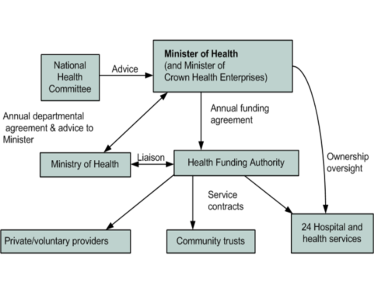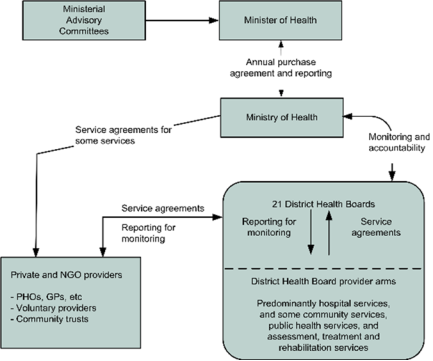Impact of New Diversional Therapy Practice Initiatives
| ✅ Paper Type: Free Essay | ✅ Subject: Psychology |
| ✅ Wordcount: 1118 words | ✅ Published: 12 Sep 2017 |
DIVERSIONAL THERAPY PRACTICE
Diversional Therapy includes the planning, outlining, coordination and execution of client focused recreation activities. The aim of which is to enhance the quality of life through continuous support and improvement of the client’s spiritual, emotional, physical, psychological and social needs and well-being.
Every activity is designed to tailor-fit an individual’s need or a group’s, in order to attain the optimum individual fulfilment and enjoyment.
Through understanding, education, and the encouragement and cooperation of fellow Diversional Therapists, diversional therapy practice could improve the lives of those in their care and promote its highest standards.
IMPORTANCE OF KEEPING CURRENT WITH BEST PRACTICE
Giving direction and meaning to life through involvement and activity is the successful end result of keeping current with best practice.
In order for Diversional therapists or any another profession to remain effective over the years, they must be updated with constant changes in services, policies and the like. Service providers have to keep pace with new trends or fall behind, lose and their competitive edge.
Likewise, keeping current is important to promote the diversional therapy’s highest standards, to promote the recognition and improvement of Diversional Therapy Education and to encourage collaboration between Diversional Therapists and other related fields.
RECENT CHANGE IN HEALTH INITIATIVES
National Depression Initiative
The National Depression Initiative was first launched in 2006 and established from the first New Zealand Suicide Prevention Strategy 2006-2016. It is a part of the Government’s continuing aim to prevent suicide, and to improve the mental health and wellbeing of all New Zealanders.
In 2012, NDI’S operational responsibility for population health and social marketing initiatives was moved from the Ministry of Health to the Health Promotion Agency to deliver the government health functions. In November 2015, the counselling support services and depression helpline component of NDI, became part of the integrated National Telehealth Service.
The Ministry of Health made necessary changes and retained strategies for a broader mental health work programme, working in partnership with the telehealth provider Homecare Medical Limited and the Health Promotion Agency.
Objectives:
- To strengthen individuals, groups, family and social factors that guard against depression anxiety and depression.
- To develop community, family and professional responsiveness to anxiety and depression
IMPACT OF CHANGE IN DIVERSIONAL THERAPY PRACTICE
In diversional therapy, dealing with clients who have depression and anxiety is a big challenge and requires collaboration with a team or between a specialized groups that is mainly focused on managing these cases.
As such, the changes in the National depression Initiative have a big impact on diversional therapy in that it builds on opportunities to create a physical and social environment which safeguards clients from depression and anxiety.
These changes enables diversional therapists to encourage people in recognizing and becoming more responsive to depression and anxiety, including the importance of early identification and interventions like self-help strategies.
Likewise, these changes develops the potential of health professionals to respond accordingly to people searching help with depression and anxiety.
Lastly, it supports coordination mechanisms between public, primary and mental health care services, consistent with the National Depression initiative’s objectives.
RECENT CHANGE IN HEALTH POLICY (less than 10 years)
New Zealand Public Health and Disability Act 2000
The Labour’s 1999 health policy release, strengthened its pre-decision promise to a restructured health system. Labour considered the past Health Funding Authority framework to be excessively competitive, having a low community input, and lacking sufficient productivity and accountability.
The Labour – Alliance Coalition Government started change through the Zealand health strategy 2000. Upon New Zealand Public Health and Disability Act 2000′s introduction, the Ministry of Health became the central agency in charge of policy advice as well as the funding and the monitoring of the health and disability sector; the Health Funding Authority was dissolved, with its functions shifted to the recently restructured Ministry of Health.
The Hospital Health Services was replaced by 21 District Health Boards (DHBS) and took charge of health services purchase and provision.
Summary of significant changes:
- 21 DHBs established
- Centralized health funding with MOH
- Less commercially focused Hospitals
- Locally elected boards for DHB governance
- Focused on preventative health services
- National health goals and targets
Every New Zealander has the right to good health care. Through the Labour government’s efforts in bringing about primary health care reforms, it has always been focused on attaining its vision. By focusing on accessibility, fairness and equality in the health domain, through an unwavering commitment to the public health system’s integrity.
IMPACT OF CHANGE IN DIVERSIONAL THERAPY PRACTICE
The over-all impact on diversional therapy practice is a rebalance on the allocation of health resources, allowing them to prioritize long-term health outcomes. This re-prioritising of critical expenditures can address health inequalities.
Along with the Health and Disability Services Act’s purpose, these changes impact diversional therapy practice by bringing about a safe provision of health and disability services, enabling DTs and facilities to establish a reasonable and consistent standards for providing these services, and encouraging health service providers to be accountable in delivering these services to the public
The long-term outcomes may be more difficult to measure than the short-term outputs but this amendments are right thing to do for improving health outcomes and securing the financial sustainability of the health system.
CONCLUSION
Diversional Therapy may seem like a simple field yet in reality, it is a complex and challenging task which needs a proper systematic approach and proper collaboration with a team and/or health service provider in order to efficiently carry out its goals.
Along with all the different activities involved in diversional therapy, it is important to keep current with best practice in order to deliver the optimum quality of service to the public as possible.
The New Zealand government has been working towards achieving key health goals and so that health ceases to be a competition. Health Initiatives and health policies are continuously being developed in order to meet the health needs of the people, utilizing evidenced-based strategies that will survive changes in government.
With the support of a strong, adequately and appropriately funded system, It as a continuous commitment to ensure that New Zealanders are able to live healthier and longer lives.
Tables
Figure 1. The structure of New Zealand’s health system, 1999

Figure 2. The structure of New Zealand’s health system, 2008

BIBLIOGRAPHY
- Govtnz. (2017). Ministry of Health NZ. Retrieved 10 March, 2017, from http://www.health.govt.nz/our-work/disability-services?mega=Our work
- Govtnz. (2017). Ministry of Health NZ. Retrieved 10 March, 2017, from http://www.health.govt.nz/our-work/mental-health-and-addictions/national-depression-initiative
- Nzmaorgnz. (2017). Nzmaorgnz. Retrieved 10 March, 2017, from https://www.nzma.org.nz/journal/read-the-journal/all-issues/2010-2019/2014/vol-127-no-1401/6271
- Parliamentnz. (2017). Parliamentnz. Retrieved 10 March, 2017, from https://www.parliament.nz/en/pb/research-papers/document/00PLSocRP09031/new-zealand-health-system-reforms
- Diversionaltherapynetnz. (2017). Diversionaltherapynetnz. Retrieved 10 March, 2017, from http://www.diversionaltherapy.net.nz/
Cite This Work
To export a reference to this article please select a referencing stye below:
Related Services
View allDMCA / Removal Request
If you are the original writer of this essay and no longer wish to have your work published on UKEssays.com then please click the following link to email our support team:
Request essay removal


